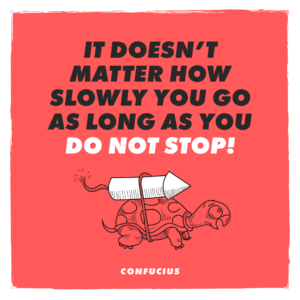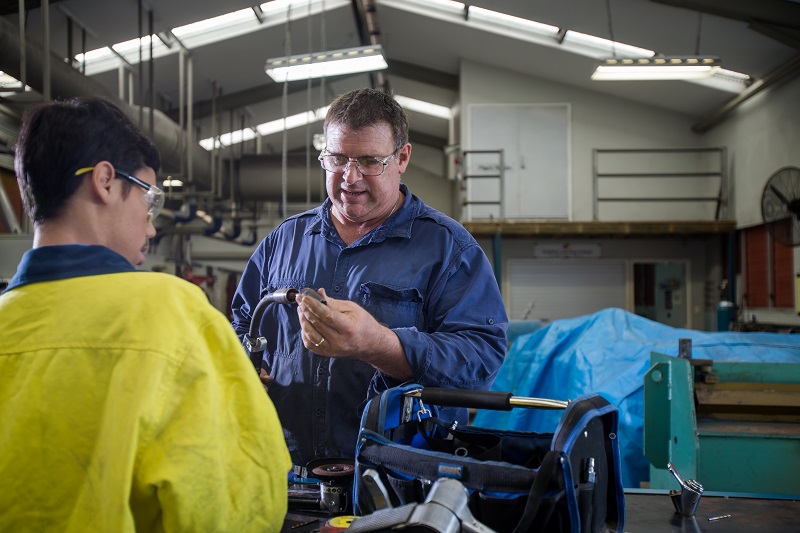Yep, there are people who drop out of school and do just fine. Better than fine, some do really well but – like sticking with school, there’s a lot of hard work that goes into succeeding when you leave school.
Before you make up your mind, let’s look at what it’s really like. Here are 5 myths about dropping out of high school that need to be set straight.
#1. It will be better than being bored here.
If you leave with no solid plan or fall back option – you will likely be bored out of school too. The best way to kick boredom is to find something you’re passionate about. Figure out what you like and check out the options. Chances are, there’s someone at the school that shares your passion and can help you to explore it more – or even work it into your study. Don’t forget that in senior year, you can choose your own subjects – so you can choose what is interesting, fun and what will set you up in life. One thing’s for sure though, it shouldn’t be boring – so if you’re feeling that, make sure you chat to someone at school about options before you look at leaving.
#2. I’m too young to make life decisions now.
You don’t have to know what you want to do or be eyeing off a university degree to choose your subjects for senior years. You don’t need to make any hectic decisions right now, if you don’t know what you want to do, check out what the options are and simply choose what interests you. It doesn’t have to be forever, remember your SET plan isn’t set in stone, and it’s better to be learning while you figure out what pathway interests you (you might find it’s something you never knew existed).
#3. I can do a course and start my career.
There are lots of different learning opportunities offered in senior years, where you can gain qualifications, with the support of the school, and while still being eligible to graduate and attain your QCE (check out school-based apprenticeships and traineeships for the best of both worlds). It’s usually cheaper and easier if the school sets it up for you too.
If you are over 16 or finished year 10 you can enrol in a course out of school too – but there are a few things to think about. First, check you’re eligible to enrol. Some courses need pre-requisites (age/ study level) so check that you can actually get in before you leave school. Second, think financials – how will you cover course fees, transport, books and other costs needed for the course? Next – check out if this is something you can actually complete in-school where you can access financial and other support while still working toward your QCE with your peers.
#4. I’ll get a job and earn more than my peers.
If money is your jam, why not get a weekend or evening job and do that while you finish your schooling? The truth is, there are limits to the amount you can earn below a certain age and then, once you reach the age of your peers who do graduate, some jobs require a high school certificate (QCE or equivalent) anyway. If working and learning at the same time feels like too much, talk to the school and see what options there are to slow it all down and get back in the green zone. If you need a job to help your family, you can talk to the school as well, once they know your situation, they can help you with flexible timetabling or other in-school support.
If you really want cash, get clever about using your education to your advantage and get schooled on business, finance, entrepreneurial skills and other things you’ll cover at school.
#5. Everything useful you learn from life, not school.
Erm, sorry but even to read this you need the literacy skills that you learned in school. You’re also learning about the world and society, how to think critically, share your ideas and listen to others, building niche technical skills and knowledge (that your parents might not even know!) and more. There’s a whole heap to learn through school that happens outside the classroom too. Those peers you can’t stand, the teachers that don’t get you – even through that you’re learning how to keep your cool, how to negotiate and deal with conflict – all critical life skills.
In school, you’ve got the opportunity to learn across a range of subject matter areas before choosing an area to focus in. The thing is, the skills and knowledge you learn now give you the foundation you need to go out and learn from new experiences later in life.
If you’re looking at dropping out because you feel you have to provide or care for family members, or for health reasons, get in touch with your school and discuss your options. They may be able to find flexible solutions and connect you with other services that still allow you to complete your study, while catering for other needs.
Dropped out and want to get back in school?
It’s never too late to finish your education. If you’re still school-aged, talk to your local school about enrolling. You might have to be a year behind your peers but you will meet new people and still be on your way to graduating with the same QCE. You can also return to school as a mature-aged student.
If you’re not of school age, or don’t want to go back to school, you can complete your studies and gain a QCE through TAFE, Distance Education and some schools and other learning settings, contact your Regional Youth Engagement Service (RYES) to find out more.





